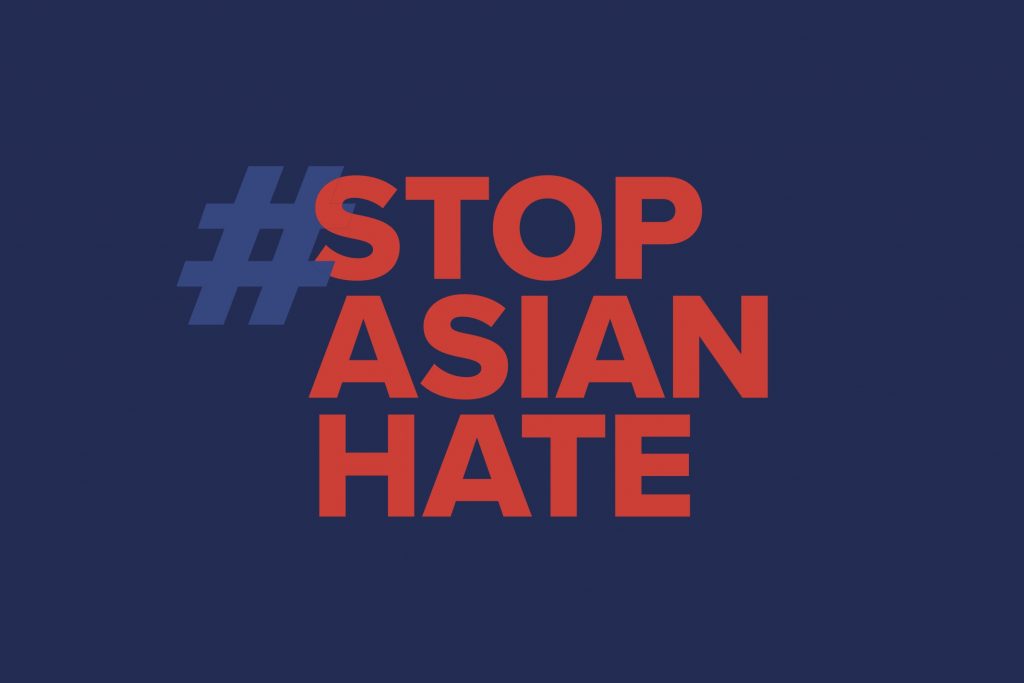Since the start of the COVID-19 pandemic, there has been a documented spike in racially motivated attacks, hateful rhetoric, and violence against people of Asian descent in the US. These attacks have again been brought to the forefront with the news that six of the eight senseless murders in Atlanta last week were Asian women across three Asian-owned businesses. This last year has been challenging for the Asian American Pacific Islander (AAPI) community to observe, experience and process.
“Hatred should never be the answer, and should not happen today towards any race, gender, or religion,” said Dr. Jianlin Si, Director, International Sales. “However, since 2020, there has been a dramatic surge in Asian hate crimes, and we must stand up against this.”
In the wake of these incidents, and in support of today’s #STOPASIANHATE Virtual National Day of Action, Asians & Allies Business Resource Group (BRG) co-chairs Allison Kao and Briana Lee reached out to team members for responses and feedback on the impacts of the past year and the lessons we must learn. The Asians & Allies BRG represents over 15,000 team members at Tyson Foods, spanning a diverse range of ethnicities, languages, and cultures.
The Effects of a Year
The increase in anti-Asian violence and rhetoric is horrifying in itself, but it also embodies a much greater and deeply seeded systemic racism against Asian Americans that has persisted in our country for over 150 years. In 2020, we saw a 150% increase in hate crimes against Asians in the United States. To build a more inclusive, united country, we must be willing to acknowledge and address the disparities that exist for people of color.
These are responses from Tyson Foods team members on how this past year has impacted them and their families and represent the experiences and feelings of many.
- “Following news of the murders in Atlanta, my phone buzzed with calls and urgent texts from family and friends urging all of us (of Asian descent) to be vigilant and aware of our surroundings. I felt fear for my parents, and for the elderly, who are most vulnerable to these targeted acts of violence and hateful rhetoric.”
- “Similar to most, it’s been a struggle to stay connected with people because COVID has limited our ability to see each other in person. My parents are concerned for my safety when I walk around Chicago or take public transit. I remember in April 2020, I was wearing a bandana around my face because I didn’t have a mask yet. It was a red bandana with a white circle logo of a dragon associated with Dragon Boat racing. Normally, I love that bandana because it’s been a talking point, and I’m proud to showcase it. However, this time, I didn’t feel comfortable wearing it outside knowing how many random acts of violence had happened to Asians just being there. I’ve never second guessed something as simple as a symbol before in my life.”
- Early on during the pandemic, a speaker not affiliated with Tyson Foods was addressing the impact of the pandemic on consumers during a virtual third-party event attended by Tyson team members. In what he intended perhaps as a joke, the speaker said, “A man who ate a bat in China has ruined our lives.” Our team member reflected, “In that moment, I felt a deep sense of shame, based on an unfounded rumor. An off-hand statement like this perpetuates stereotypes about our people, our culture, and how we behave that inherently creates a sense of ‘otherness.’”
- “I have become increasingly aware that people first define you based on your gender, color of your skin, and sexual orientation. After passing judgment based on these criteria, then they will look at other aspects of your character like your integrity, skills and performance. I want people to understand that I am more than my exterior characteristics.”
The Lessons We Must Learn
The model minority myth, which persists today, is particularly harmful to the Asian American community. This myth characterizes Asian Americans as inherently hard working, successful and problem-free, and makes it seem like there is no basis for injustice. However, if you look beneath the surface, Asian Americans have the largest income gap of any racial group.
The perceived success of a small percentage of our population erases the experience of individuals who are among our most vulnerable – the elderly and those struggling to get by – who continue to be dismissed, targeted and marginalized to the fringes of society. Moreover, the model minority myth can be used as a weapon that contrasts the apparent success of one racial group against another; it prevents solidarity.
Team members also noted the dangers in perpetuating stereotypes: Asians are not a virus, a perpetual foreigner, or a model minority. It’s also important, team members said, to recognize that immigrants come to this country to prosper and thrive, and cultural differences do not change their value in society.
How To Take Action
BRG members compiled the following list of ways to take personal ownership of equity, inclusion, and diversity in our day-to-day roles, and how to show support for fellow Asian Americans and Pacific Islanders in the workplace and in our communities.
LEARN:
- Watch PBS’s “Asian Americans” five-episode series exploring the history of identity, contributions, and challenges experienced by AAPI’s.
- Participate in EI&D training or conversations at work; sign up for free online resources like bystander intervention training offered through a variety of non-profit organizations.
LISTEN:
- Express a desire to listen & learn. As an ally, ask the question, “How can I support you?” Begin with empathy; then let empathy move you to compassion and action.
- If unsure how to support, simply ask how they are doing.“One of Tyson’s core values is that we are caring,” Dr. Si said. “This applies not only to Tyson but should also be true for our community and society.” Let them know you care.
- Affect change through day-to-day actions such as including diversity in your network, participating in conversations to learn about what struggles your team members are facing, and standing together in the fight.
SUPPORT:
- Leaders need to consistently talk about EI&D. Similar to how Safety Moments are featured in regular meetings now; EI&D should be a consistent recurring topic as well.
- Understand and acknowledge that racism does exist for the Asian community.
- Show support in the room and interrupt racism. Be willing to say something and be armed with simple catch phrases: “That’s inappropriate” or “I do not condone violence against any community.”
- Support local Asian-owned businesses. Asian businesses and restaurants have not only suffered from 15+ months of the pandemic and xenophobia crippling their business; they now go to work every day fearing for their safety.
- Support local or national funding for Asian support groups, non-profit organizations, and initiatives
At Tyson Foods, we are willing not only to speak out, but to take action, including supporting organizations that have as a part of their mission eliminating hate and racism against Asian Americans and Pacific Islanders. Every day, we should be creating environments where every team member feels valued and respected. This means that we must be willing to learn, to understand and to grow.
“By working collaboratively,” Dr. Si said, “we will create a society for people to live without fear, full of innovation and equal opportunity.”





